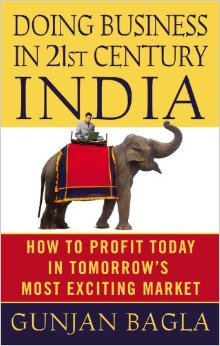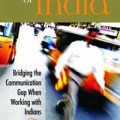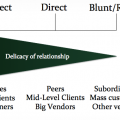
Gunjan Bagla’s Doing Business in 21st Century India is the best book out there for the person heading a business unit in India, overseeing an expansion process, or wanting to start a new venture. Expatriates on work assignment and casual travellers can gain some good insights from, but the biggest value comes for the person who has to keep the full business picture in mind.
Bagla covers an overwhelming scope of information in only 200+ pages. He is a consultant who works with companies who want to expand and improve their India operations, and you can see him demonstrate his expertise. In each section of the book, he delivers the most poignant advice and keeps the applications relevant.
(Listen to my podcast with Gunjan Bagla here.)
The book covers the following topics:
- Introduction to Indian Business
- Cross Cultural Communication
- Human Resources
- Marketing
- Finance
- Legal and Accounting
- Travelling and Living Tips
It’s not necessary to read the whole book cover to cover; it can be overwhelming to try to take in everything. Instead, read the first two sections and whichever other chapter is most relevant for you. Then, come back when the other issues become more pressing for you.
One of my favorite quotes from the book is in the introduction:
“Many foreigners, when they come to India, operate on bad assumptions. If you come to India assuming most people or organizations are corrupt and can’t be trusted, you are already in trouble and won’t be successful,” reasons Mason Byles, who spent several years in India on a joint venture project with Hewlett-Packard in the 1990s. According to Byles, American arrogance is another problem; if you assume that you have the solutions before understanding the problems, and if you like to tell people how things should be done rather than asking sincerely for input in a way that will result in honest advice, you are doomed to fail. Some foreigners in India have a tendency to complain about the differences rather than adapt, appreciate, and enjoy them – and that, too, is a recipe for failure. (48)
This is probably some of the most helpful advice anyone could have when starting to work in India. Admit that you have assumptions and realize that they are probably bad.
Some of the best material came in the Cross Cultural Communication chapter. Bagla doesn’t limit his comments to the typical indirect/direct observations, but defines communication in its broadest sense, applying it to time, power distance, relationships, and more. He also draws attention to responding to the ever-important question, “When will you be back?”
The sections specific to HR, Marketing, Finance, and Legal and Accounting all have important information that you need to be familiar with if you are operating any kind of large operation in India. I liked the quote from the HR section that says, “India’s biggest asset is its human potential, if you know how to use it.”
The weakest section of the book is the last one on travelling tips – not because the advice is bad, but because the rapid-fire delivery makes it hard to consume and unlikely to stick in the reader’s mind.
Use this book for its intended purpose: get an overview of the modern business landscape of India, understand the basics of communication, and develop foundational knowledge on key business areas. You will not be disappointed.
Buy the book now on Amazon.in or Amazon.com
(affiliate links).



